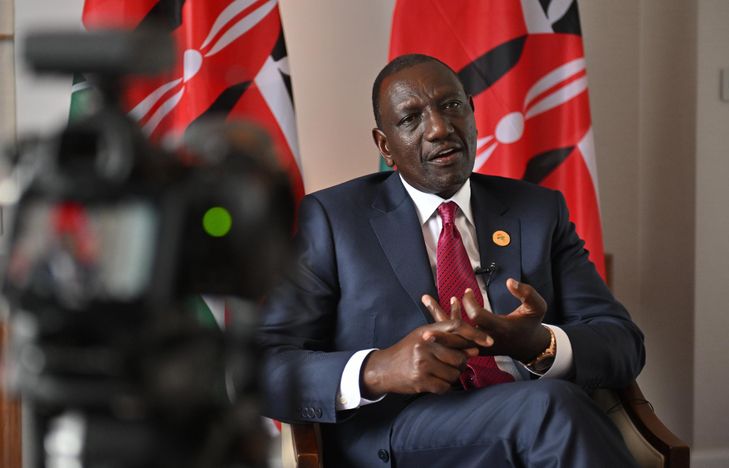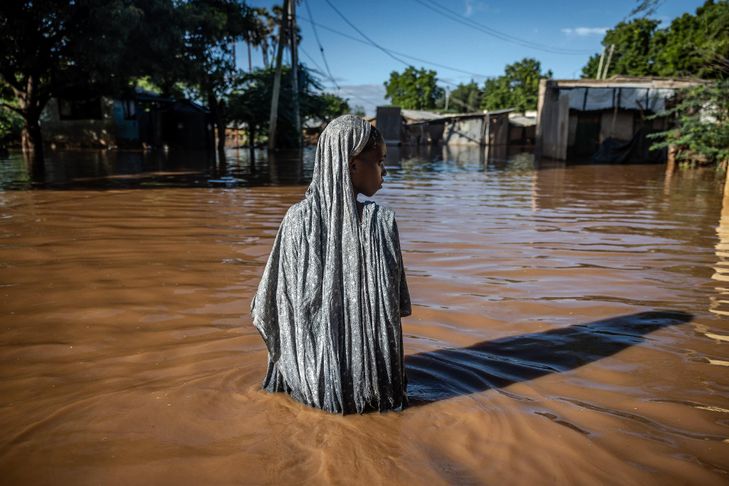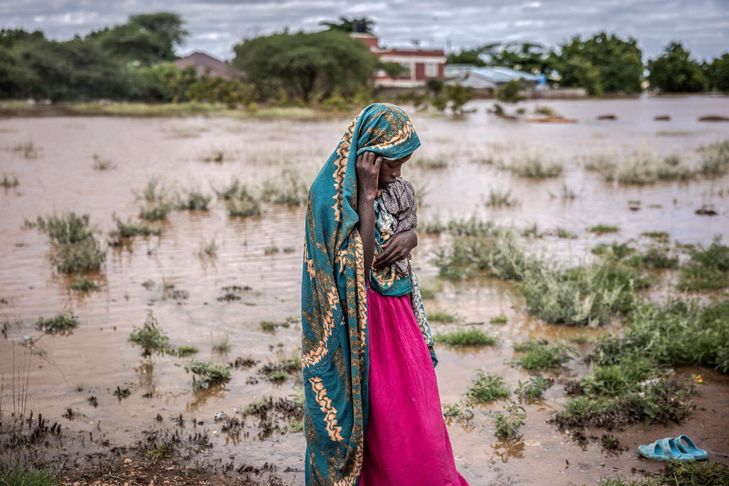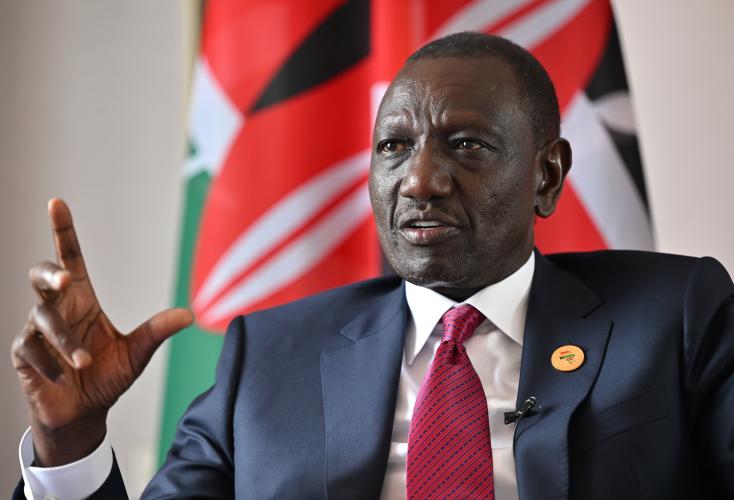Africa can help “decarbonize” the global economy if developed countries invest seriously to ” release “ son ” potential “ in this matter, Kenyan President William Ruto said on Wednesday in an interview with AFP.
Coming to Seoul this week for an Africa-South Korea summit, where the latter pledged $24 billion in aid and investment support for Africa, Mr Ruto called on rich countries to do more for the clean energy transition on the continent, from technology transfer to financing.
“We see the effects of climate change everywhere”he told AFP, citing the example of Kenya which recently experienced extreme drought and devastating floods.
Africa wants “be part of the solution”he adds, deploring that the continent is being sidelined from climate efforts, an allusion to recent investments in the field of renewable energy, of which only a tiny part has been directed towards Africa .
“Use our strengths”
“We need greater investments on the African continent to unlock African potential, which may not benefit Africa alone”he emphasizes.

Kenyan President William Ruto during an interview with AFP in Seoul, South Korea, June 5, 2024 / Jung Yeon-je / AFP
“We can use the assets we have in renewable energy, our mineral resources, our human capital on the continent, to decarbonize, not only our production and consumption, but also global production and consumption”.
It takes “an international financial architecture which gives the countries which suffer the most and yet have contributed the least, the best chance of resisting and adapting”he continues.
“This is why we have encouraged the international financial architecture to be more agility, more flexibility, and to provide resources for developing countries, in particular Africa… Because at the moment, we are paying five , six or seven times more than other countries » in other regions, said the president.
The aid announced this week by Seoul aims to give African countries more means to adapt to climate change and manage its effects.
In 2009, developed countries promised to mobilize some 100 billion dollars per year until 2020 to help poor states invest in clean energy and deal with the effects of global warming.
They achieved this objective for the first time in 2022, the OECD assured last week.

A woman in a flooded area of Garissa, May 9, 2024 in Kenya / LUIS TATO / AFP/Archives
But if these 100 billion dollars are “a step in the right direction”more will be needed, underlines Mr. Ruto.
Experts estimate that developing countries need well over $100 billion to develop renewable energy and take adaptation measures such as coastal defenses against rising sea levels.
According to a UN estimate, these countries (excluding China) will need 2.4 trillion dollars per year to meet their climate objectives and needs.
” Equity “
Financing climate policy is a thorny subject in annual discussions at the United Nations and negotiators have been busy this year trying to raise the $100 billion target.
Azerbaijan, an oil country and host of COP29 this year, has made it a priority and hopes to obtain an ambitious agreement during the summit in November.

A woman stands in the middle of a flooded field, near a camp for displaced people in Garissa, on May 8, 2024 in Kenya / LUIS TATO / AFP/Archives
Earlier this year, Kenya was hit by torrential rains, amplified by the El Niño phenomenon, which have killed around 300 people in floods since March, according to the government.
Mr Ruto said his administration was working at all levels to make the country more resilient to extreme weather events.
“We have 10 to 30% forest cover”he told AFP, adding that the country would plant 15 billion trees.
Kenyan forests are key to Africa’s growing carbon markets, with the country accounting for some 25% of these trades.
“It’s a whole series of ecosystems, meadows, forests, our national parks…”, lists Mr. Ruto. The idea is to promote communities that “are home to meadows and forests”he emphasizes.
“It’s a very new space”said Mr Ruto, calling for the establishment of a global regulatory mechanism for “ensure that there is fairness and no exploitation”.







![haiti--u-20-world-cup-qualifier-chile-2025-our-grenadiers-crushed-by-mexico-4-0-video - Haitify haiti-–-u-20-world-cup-qualifier-chile-2025:-our-grenadiers-crushed-by-mexico-[4-0]-(video)](https://haitify.com/wp-content/uploads/2024/07/43281-haiti-u-20-world-cup-qualifier-chile-2025-our-grenadiers-crushed-by-mexico-4-0-video-300x300.png)